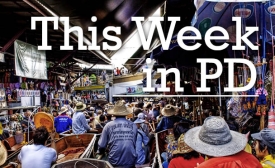soft power
Iran in the new era began its attempts to resolve it through new diplomacy tools based on maximum engagement, as well as employing a new rhetoric based on a “patience-oriented, friendly approach” towards diplomacy, which in many ways helped to harmonize and reconcile inconsistencies between its foreign policy and public diplomacy.
Publishing group Pearson announced the sale of the Financial Times Group to Japanese media firm Nikkei, a move that caused concern among many Chinese. The Financial Times has been one of the most influential Western media outlets in its coverage of Chinese business. Moreover, compared to other Western outlets, the newspaper has a friendly relationship with the the Chinese government.

News headlines showcased this week how nations utilize cultural diplomacy and other soft power assets to brand themselves abroad.
For more than a month, students at the prestigious Film and Television Institute of India (FTII) have been on strike. The FTII is one of numerous institutions of higher learning funded by the government.
Ambassador of China to Italy Li Ruiyu highlighted the most recent example of fruitful bilateral exchange, the Expo Milano 2015, which since its opening on May 1 has hosted a series of important Chinese events, from the China National Day to the Beijing Week, Shanghai Week and many other activities organized by different regions of China.
![Photo courtesy of Paul [sic], via Flickr Creative Commons](https://uscpublicdiplomacy.org/sites/default/files/styles/275x168/public/uploads/Web%20-%2020090131%20-%20Chinese%20New%20Year%20London%20-%203249432875_d0ce538cba_o%20-%20Paul%20%5Bsic%5D.jpg?itok=E5ntNo2e)
“Rising Soft Powers: China” is the second title in our e-book series.
But with 998,000 overseas foreign workers in 2014, according to the Chinese Ministry of Commerce, China has slowly come to realize that operating globally means indeed greater risk and the requirement therein to protect both its foreign nationals and overseas investments. To this end, China has increasingly felt the pressure of being in the middle of potentially hostile territory throughout the Middle East and Africa.







